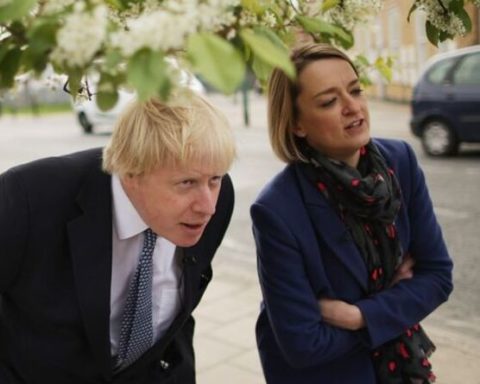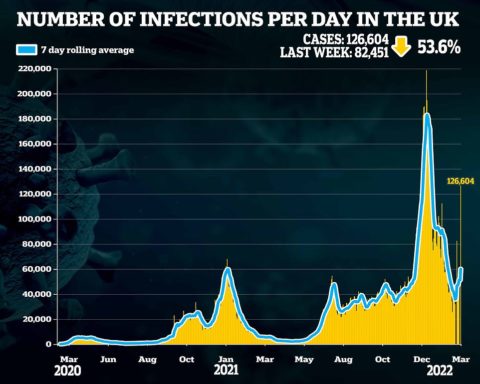The prime minister boldly claimed that freeing ourselves from the EU would allow “Global Britain” to flourish. But some in Scotland and Wales have exploited the historic 2016 referendum to try and break up the 300-year-old union.
And with teething issues surrounding the new EU relationship creating a border in the Irish Sea, combined with rising support for independence in Wales and Scotland, it could prove a potentially fatal mix.
This is why the prime minister is being urged to seize the bull by the horns and strike a clear and successful path for all four corners of the United Kingdom to prosper.
As the country marks 100 days since the Brexit Transition period ended, Bloomberg examined the outlook of the UK’s devolved nations.
Matt Qvortrup, a professor of political science at Coventry University who served as a special adviser on UK constitutional affairs, told the publication: “But for Brexit, the union would be relatively safe, but I’m not so sure now.”#
READ MORE: EU at risk of losing health research leadership status
But observers claim that, which support for breaking away from the UK strongest among the young, it could just allow the issue to fester.
Emily Gray, who runs pollster Ipsos MORI in Scotland, told Bloomberg that Brexit was critical to the rise in support for independence.
The result is “significant doubts in Scotland about the future of the union,” she said.
“Over half of Scots expect that the UK won’t exist in its current form in five years’ time.”
This has led Scottish Conservative leader Douglas Ross to declare that “it’s recovery or referendum. We can’t do both” ahead of May’s elections.
In Wales, whose parliament is currently dominated by Labour, support for leaving the UK is on the up, albeit on a much smaller scale than Scotland.
This has risen during the coronavirus pandemic, playing into the hands of the nationalist Plaid Cymru party.
The party, which has pledged to hold a vote on Welsh independence within five years if it wins power, is predicted to do well on May 6 and could force Mark Drakeford’s party into a coalition.
Meanwhile in Northern Ireland, enjoying a tentative peace since The Troubles ended in 1998, support for unifying with its southern neighbour is growing.
Recent polls have suggested a majority now back such a move within five years.
What response this would provoke from the province’s unionist community remains to be seen.
But with 70 PSNI police officers injured during pro-Unionist rioting in the past week – it raises the spectre of a return to the dark days of violent sectarianism.
Bertie Ahern, the former Irish Prime Minister who played a key role in the 1998 Good Friday peace agreement, said that the result of all of this was that “socially, the UK is becoming less of a family”.




